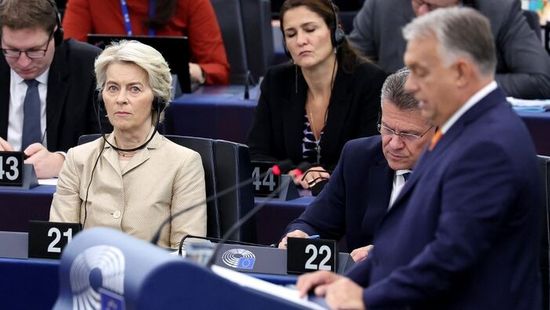Dokumentumok bizonyítják: Brüsszelben arra készülnek, hogy a Fidesz nyeri meg a választást

Az elemző szerint ráadásul az is egyértelmű, miért nem lenne rájuk szükség, ha Magyar Péteréket tartanák esélyesnek.

The biggest threat to Israeli-Palestinian peace might be the peace process - or, more precisely, the illusion that there is one.
„A profound change, however, is this: talk about the crisis between Israel and »the Arab world« is anachronistic. Israel has treaties with two Arab nations, Egypt and Jordan, and Israel's most lethal enemy is Iran, which is not an Arab state. It and another non-Arab nation, Turkey, are eclipsing the Arab world, where 60 percent of the population of 300 million is under 25, and 26 percent of that cohort is unemployed. The prerequisites for Arab progress - freedom, education and the emancipation of women - are not contemplated. Syria's Bashar al-Assad, a dictator buttressed by torture, recently called Israel a state »based on crime, slaughter«. Imagine what Israelis thought when, at about the time Assad was saying this, a State Department ninny visiting Syria was tweeting to the world, »I'm not kidding when I say I just had the greatest frappacino ever.«
Israel has changed what it can, its own near neighborhood. Since 1967, faced with unrelenting Palestinian irredentism, Israel has been weaving the West Bank into a common fabric with the coastal plain, the nation's economic and population center of gravity. Withdrawal from the West Bank would bring Tel Aviv's Ben-Gurion Airport within range of short-range rockets fired by persons overlooking the runways. So, the feasibility of such a withdrawal depends on how much has changed since 1974, when Yasser Arafat received a standing ovation at the United Nations when he said Israel had no right to exist.”